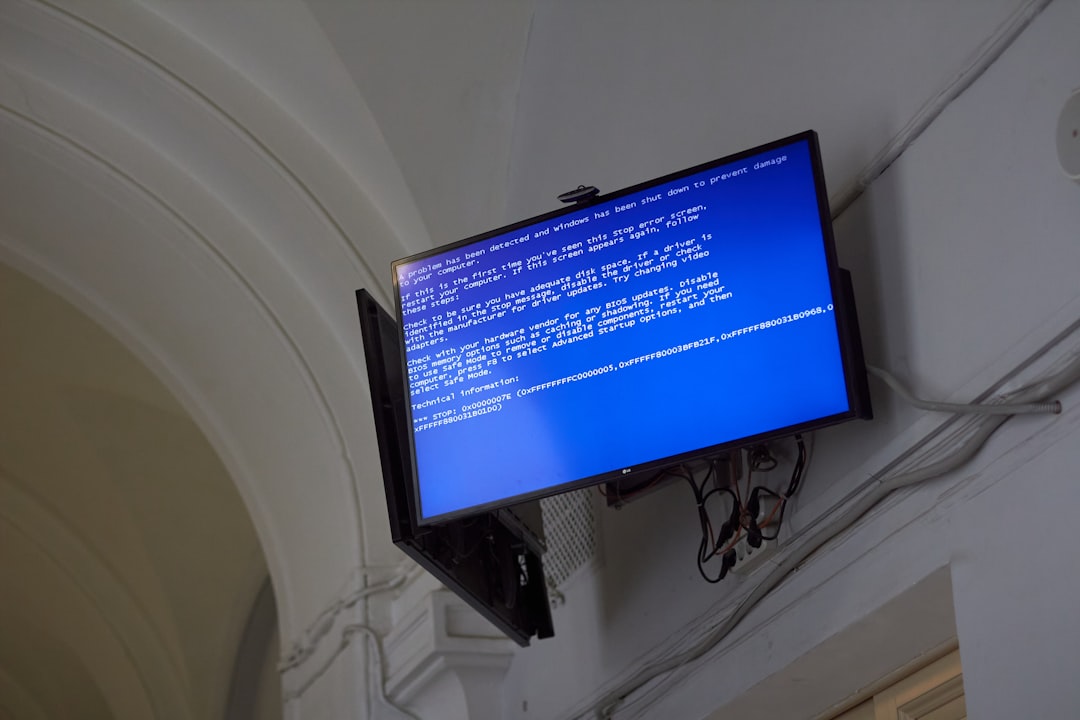Many users on Windows 11 and Windows 10 encounter ZIP-related issues occasionally. One such irritating problem is the 0x80010135 ZIP extraction error. This error typically appears when users attempt to extract files from a ZIP archive and a message like this pops up: “An unexpected error is keeping you from copying the file. Error 0x80010135: Path too long.” Fortunately, several tried and tested methods can help resolve this issue. Below is a comprehensive guide on how to fix the 0x80010135 ZIP extraction error in Windows 11/10.
Understanding the 0x80010135 Error
Before diving into the solutions, it’s essential to understand what this error typically means. The 0x80010135 error essentially stems from a limitation in the Windows file path length. By default, Windows uses the MAX_PATH variable which restricts paths to 260 characters—including the folder directories and file name. If the ZIP file you’re trying to extract contains files with paths longer than this threshold, you’ll likely encounter the 0x80010135 error.
Methods to Fix 0x80010135 Error
Here are several effective solutions that can help overcome this extraction issue:
1. Extract ZIP File to Root Directory
One of the simplest workarounds is to extract the ZIP file to a location closer to the root of the drive, such as C:\. The idea here is to shorten the file path so that it doesn’t exceed the character limit.
Steps:
- Move your ZIP file to C:\ or D:\
- Right-click on the ZIP file
- Select Extract All…
- Set the extraction destination to C:\
2. Enable Long File Paths in Windows
Windows 10 and 11 support long file paths but the feature is not always enabled by default, especially on older systems or educational/business devices with group policies.
To enable long file paths:
- Press Win + R and type
gpedit.mscto open the Local Group Policy Editor - Navigate to:
Computer Configuration → Administrative Templates → System → Filesystem - Double-click on Enable Win32 long paths
- Set it to Enabled and click OK
Note: This method only works on Windows Pro, Enterprise, and Education. If you’re using Windows Home, proceed to the registry method below.
3. Modify the Registry to Allow Long Paths
If you’re using Windows Home or if Group Policy isn’t available, you can achieve the same outcome through the Registry Editor.
Steps:
- Press Win + R and type
regedit, then press Enter - Navigate to this key:
HKEY_LOCAL_MACHINE\SYSTEM\CurrentControlSet\Control\FileSystem - Look for a value named
LongPathsEnabled - If it’s not there, right-click → New → DWORD (32-bit) Value and name it
LongPathsEnabled - Double-click it and set the value to 1
- Restart your computer
4. Use a Third-Party File Archiver
If the integrated Windows zip utility is failing, consider using alternative extraction tools. These often handle long paths more efficiently.
Popular options include:
- 7-Zip
- WinRAR
- PeaZip
How to use 7-Zip:
- Download and install 7-Zip
- Right-click the ZIP file
- Select 7-Zip → Extract files…
- Choose a root directory (e.g., C:\Extracted)
5. Rename and Shorten Folder/File Names Inside the ZIP
If there are only a few files causing the issue due to long names, try renaming them. You can do this partially without extracting:
Steps:
- Open the ZIP archive with 7-Zip or WinRAR
- Browse through long paths and rename them to shorter names
- Then extract normally
6. Use Command Line Extraction via PowerShell
This method bypasses some Windows Explorer limitations when extracting ZIP files.
Steps:
- Press Win + X → Choose Windows Terminal (Admin)
- Run the following command:
Expand-Archive -LiteralPath "C:\YourZipFile.zip" -DestinationPath "C:\TargetFolder"
You may need to replace the path with your own ZIP file and extract location.
Prevention Tips
To avoid the 0x80010135 error in the future, consider adopting the following practices:
- Avoid nesting too many subfolders inside your ZIP archives
- Use shorter folder and file names when compressing and extracting files
- Regularly enable and verify long path support if you reinstall or reset Windows
Conclusion
The 0x80010135 ZIP extraction error might seem frustrating at first, but with the right approach, it’s entirely manageable. Most of the time, it boils down to Windows’ default path length limitations. By understanding and applying the solutions above—from enabling long paths to using third-party tools—users can resume working with compressed files without further issues.
FAQs
What causes the 0x80010135 error on Windows?
The error generally occurs due to file paths that exceed Windows’ 260-character limit. It can also be triggered by problematic ZIP archives or permissions issues.
Can I fix this error without downloading third-party tools?
Yes. You can resolve the error using built-in methods such as extracting to the root directory or enabling long path support via registry or group policy.
Is it safe to edit the Windows registry to fix this?
Yes, as long as you follow the steps carefully. Always create a backup of your registry before making changes to avoid unintended consequences.
Does enabling long path support affect other applications?
It improves compatibility with modern apps and doesn’t negatively affect Windows itself. However, some legacy applications may still not support long paths properly.
Is there a maximum limit even after enabling long paths?
Yes, the absolute maximum is increased to 32,767 characters, though very few workflows approach this level. Practical limitations from certain apps or libraries may still exist.
- How to Fix Error 1005 Access Denied (Cloudflare Fix Guide) - February 22, 2026
- SOS in Morse Code: What It Means and How to Use It - February 22, 2026
- How to Fix “To Try Again Enter A1B2C3 Below” Error - February 21, 2026
